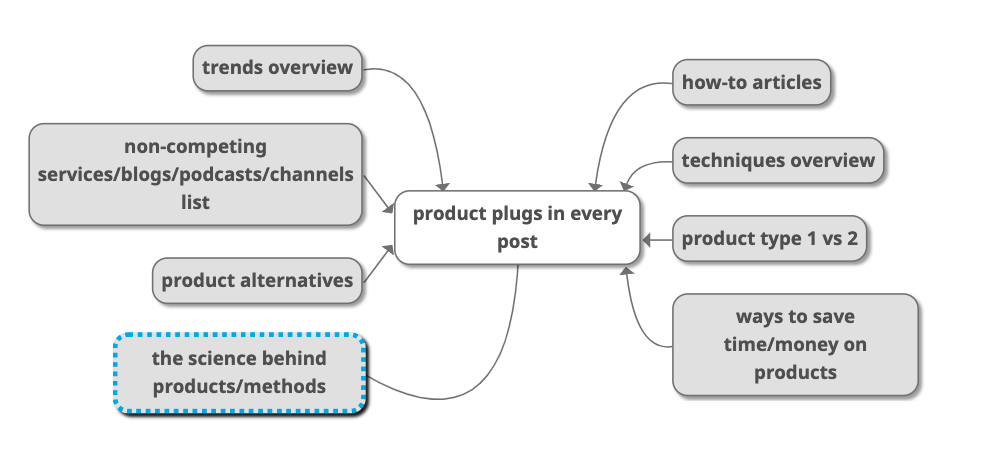Affiliate websites, so called “niche” websites, “made-for-Amazon”, or review sites used to be really popular at some point.
They still work in 2022, but you need to approach them differently than before.
Namely, you need to have a very specific blog strategy to grow a niche site properly.
Why you need a blog strategy for a niche website
If you only post “money” content – your website is under constant risk.
We’ve had dozens of clients come to us with niche websites that have lost traffic during a Google update or after a manual review.
All of the penalized niche sites had one thing in common – they only published commercial, product-based content. They had “blogs” but all the posts in them were mostly product reviews, lists, and long-tail commercial intent keywords as titles.
None of these sites will pass any kind of manual review, because frankly, they are not adding any value. Sneaking in your affiliate link between the buyer and Amazon may work occasionally, but it’s not a viable business model.
Your niche website needs to provide value to readers and customers. After all, the true affiliate is the one who gives people a reason to purchase the product via their link.
Luckily, it’s relatively easy to create a blogging strategy for niche affiliate websites and implement it.
Let’s go over the list of do’s and don’ts for niche affiliate websites.
Do’s
Focus on your audience’s needs. Branch out into wider topics, go beyond products. Explore techniques, trends, best practices, tips for money saving and process optimization, etc.
Putting together a customer persona is the foundation of this – you need to know WHO you want to click your links, and craft your content for them.
You can plug your affiliate products into every article that helps solve your audience’s needs.
Here’s a quick set of blog post ideas for niche/affiliate websites:

Example – if you are mainly selling dog collars on your website, publish large and fun to read posts on dog training, nutrition, compare breeds, explain how to overcome challenges with adopted dogs, and so on.
Don’ts
Don’t turn 100% of your blog posts into a list of long-tail keywords that all pretty much have a list of affiliate products inside.
Your blog posts archives should NOT look like this:
- best dog collars for german shepherds
- best dog collars for small dogs
- best glow in the dark dog collars
- top leather dog collars
- best waterproof dog collars
etc.
It is exactly affiliate sites that follow this route that get hit by all kinds of penalties and lose their traffic during Google’s updates.
If you need a custom content plan created for your site’s long-term success, order one from us. We’ve worked with several dozens niche websites in 2020-2022, helping them regain their traffic after penalties.
Pingback: Top e-Commerce Blogging Dos and Don'ts - the 2022-ready list - Web Copy Land